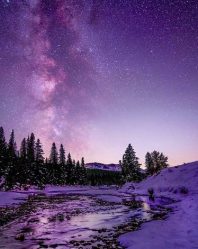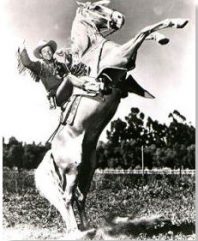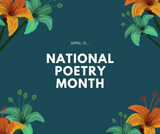S.M. Hulse has carved out a unique place in the psyche of the American West. In her timely and powerful novels she reveals what glimmers beneath the surface of our collective ills: an uncommon but vital desire to understand chaos, to unite with each other when possible, and to face trauma with grace, quiet confidence, and hard won redemption. With two novels to her name, both having received the coveted Kirkus star awarded to books of exceptional merit, Sarah Hulse names the darker parts of our humanity and reclaims them through strength, beauty, chiseled prose, and stellar narrative arcs. Her first novel, Black River, was a PEN Hemingway finalist, an American Library Association Notable Book, a Montana Book Award Honor Book, a Seattle Times Best Book, and winner of the 2015 Reading the West Book Award. In it she details Montana, the hard crucibles of prison life, and the blessing of music. In her new novel, Eden Mine, coming out in February of 2020 (available for preorder now), Hulse returns to Montana and places readers in a nexus comprised of domestic terror, the slippage generated by excess ego, and the humility that has the capacity to surprise us with it’s healing force even in the face of grave harms. Such exquisite stories deserve our attention, our deepest read, and in return they leave us with a greater ability to approach one another with new eyes and new hearts. Coming into contact with Eden Mine’s main character, Jo Faber, a woman of unique sensibility, a person of rare ability to hold polar struggles in creative tension, and a dedicated painter whose history is fraught with tectonic sorrow, is something I won’t forget. Christopher Coake called Eden Mine “a page-turning thriller”; Molly Gloss called it “luminous, deeply moving, and insightful”; and Josh Weil called it “subtle, powerful, and unflinchingly honest.”
As you walk into your nearest independent bookstore, I hope the thoughts of S.M. Hulse below will accompany you, uplift you, and take you to an unforeseen place of harmony, especially now under the impact of national and international rifts that so often pepper our contemporary lives.
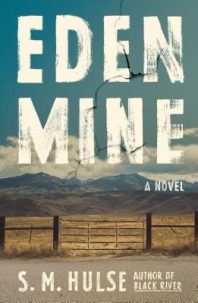 Shann Ray: What a bold true gift your novel Eden Mine is, making me and what is sure to be many readers to come, grateful to encounter a story of such fortitude, beauty, and the most fierce forms of redemption. Jo and Samuel, Asa Truth and Sheriff Hawkins. True people, alive, moving deep into the life of the reader. How did you come to the heart of a novel about grace even in the face of the violence that currently plagues America?
Shann Ray: What a bold true gift your novel Eden Mine is, making me and what is sure to be many readers to come, grateful to encounter a story of such fortitude, beauty, and the most fierce forms of redemption. Jo and Samuel, Asa Truth and Sheriff Hawkins. True people, alive, moving deep into the life of the reader. How did you come to the heart of a novel about grace even in the face of the violence that currently plagues America?
SMH: Thank you for your kind words about Eden Mine. I completed the first draft of this novel in the summer of 2016 and began planning and writing it a couple years before that, so it wasn’t conceived as a response to especially recent events. In fact, I don’t really think of it as a political novel at all; rather, at its core I see it as being about the reality that this is a world that contains both enormous evil and incredible acts of kindness, compassion, courage, and grace. Jo, the protagonist of Eden Mine, must reckon with this reality in an incredibly personal way, as she struggles to cope with the realization that her brother is both someone she loves deeply and someone who has done something truly terrible. I hope it is a novel that looks unflinchingly at the consequences of hate and violence while also recognizing that hate and violence cannot be eliminated with more of the same.
SR: You are a friend of horses. In what ways has your life with horses influenced your life as a novelist?
SMH: I have loved horses all my life. Long before I had the opportunity to ride horses, much less own one, I collected horse books and model horses and learned everything I could about them. They’re such large animals, and so much about them seems equally outsized: their strength and power, the bond between a human and a horse who trust one another, and the potential for tragedy presented by their surprisingly fragile bodies. This makes them powerful symbols for a writer, of course, but on a personal level it’s also true that some of the most significant experiences of my life—the experiences I draw on when imagining my characters’ emotions—come from my time with horses: gathering the courage to ride again after a nasty fall, being praised by a judge for my harmony with a horse I spent months struggling to build a rapport with, holding the lead of my first horse as he was euthanized. In Eden Mine, I think the sense of freedom and strength many young women feel when building bonds with horses is amplified for Jo, who suffered a spinal cord injury as a child and uses a wheelchair. The impending loss of her home is embodied and amplified by the resultant impending loss of her beloved mule.
SR: The characters in Eden Mine carry, in many ways, the deepest fractures in American life, between men and women, between people and their governments, between law enforcement and mercy, between didactic religion and the more mysterious life of the spirit, and the very fine line between love and hate. Please speak to these juxtapositions in your work and how your life as an artist has been influenced personally by such unexpected light appearing in the dark of these fractures.
SMH: One of the things I have found most distressing about the current climate in America is the willingness of many people to draw hard lines between “us” and “them,” whether politically or otherwise. That doesn’t mean I don’t think different kinds of communities, including communities built on shared characteristics, are important—I do—but I also find that the world and the people inhabiting it tend to be far more nuanced than these kinds of simple divisions allow for. One of the things I love about fiction is that it allows us as authors to explore these kinds of nuances in the form of characters with complex histories, feelings, and loyalties. Few if any of us are wholly defined by a single identity characteristic, and I think fiction allows us to see that more clearly even when the rhetoric most prevalent in our daily lives might suggest otherwise.
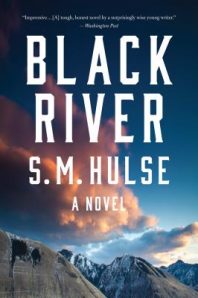 SR: Your work resounds with the dignity of our individual and collective life together. How do you envision unity and enmity in the context of the feminine and the masculine and all orientations surrounding these in America, in the West, and in our most beloved relationships?
SR: Your work resounds with the dignity of our individual and collective life together. How do you envision unity and enmity in the context of the feminine and the masculine and all orientations surrounding these in America, in the West, and in our most beloved relationships?
SMH: I tend not to think actively in terms of the feminine and the masculine when writing. I do think about the ways in which stories and mythologies about the American West impact those who grow up here, and of course ideas about femininity and masculinity are part of that. In Eden Mine, for example, all of the principal male characters—Samuel, Hawkins, and Asa—are trying, in their own ways, to protect those they love, which might be considered a masculine value, though not an exclusively masculine value. However, all three characters approach that goal in very different ways, ranging from aggressive—even violent—behavior to efforts to physically heal. All three are also influenced by the remoteness of the geography in which they live, and by the resulting responsibility they feel to personally protect those they care about or feel responsible for. At the same time, these actions can’t be attributed to a single characteristic. Does Samuel try to protect Jo because he is a man and she is a woman? Or is it because he is older and she is younger? Or because he is physically powerful and she lives with a disability? And Jo, despite being female, younger, and disabled, is trying to protect her brother, too.
SR: Carl Jung stated “The less embodied the shadow, the darker and denser it is.” In other words, the less we are able to speak our shadow, to dialogue about it and draw it near as we would a good brother or sister and listen to what it whispers in our ear, the more we will fracture one another. I see Eden Mine as a profound and powerful expression of this Jungian notion. In that light, how do you approach or define the crucible in which America is experiencing the current iteration of our own self-inflicted domestic terrorism?

Pages raised and lowered the flag to indicate the House was in session. Image courtesy of the Office of the Clerk, 2006, U.S. House of Representatives
SMH: I love America, and I am also sometimes frustrated by America. I don’t think this makes me particularly unique as an American, but recently it sometimes feels that we’re asked to choose between these two truths. I was a U.S. House of Representatives page in high school, and I got to spend a year watching the legislative process up close. I developed a strong appreciation for the American system of government, and I still believe in that deeply. I also saw elected officials who were corrupt and elected officials who worked tirelessly for their constituents and all Americans. I saw staffers who worked to keep the institution functioning, and law enforcement officers who protected all the other people working in or visiting the Capitol. I saw protesters who came to express their anger or fear or passion and I saw tourists from around the world who came to see a seat of American government. I saw the places where terrible things had happened in the past, where people were shot or where bombs had been placed or where elected officials had brawled. Those experiences complicate my understanding of every seemingly simple political news story I read or outraged social media post I see. There are dark things in our history, but there are also people who have worked hard to change those things and to move us closer to living up to the ideals we profess. Those people have not and do not exist in just a single political party. While we may not always agree on what needs to change or how it needs to change, I think it’s vital that we be willing to talk to one another about it, and as much as possible to do so without assuming evil intent on the part of those with whom we disagree.
SR: Your landscapes are stunning in beauty and grace, transcendent in darkness and light. Tell us about your process with regard to landscape in your novels. Why is Montana a beloved place for you as a writer?
SMH: Some of it is, as you say, that there is both darkness and light present in the Montana landscape, and in the landscape of the American West in general. It is a place that has been a canvas for many dreams but has also often presented difficulties and dangers to those who inhabit it. For a writer, these contradictions are rich with meaning and possibility. It is a place where the stories that have been told about the place impact the lives and beliefs of the characters we tell stories about now.
SR: How does art transform our lives?
SMH: Art allows us to express things that other mediums or modes of communication, like politics, are ill suited for. I think art is especially useful for conveying and reflecting on the complexities and nuances of humanity and life. I also believe that art is vital in rendering and reflecting upon spiritual or religious experiences and concerns.
SR: What gift would you give to one who has committed uncommon trauma against others, has made a legitimate internal reckoning, and now seeks to be welcomed back into the human community?
SMH: Perhaps the gift of believing that personal transformation is possible. To be clear, I don’t think that all people who have committed terrible acts do change in this way, and we should never minimize or attempt to erase the harm and grief that a person’s actions have caused others. But I do think it’s important that we are open to the possibility that people can, and sometimes do, change their attitudes, beliefs, behaviors, and lives dramatically.
SR: Your work takes on some of the toughest, most complex problems of the human community. In what ways do you speak to the nihilism and contempt that are so common between opposing parties in what might be presently called the age of enragement?
SMH: I hope my work encourages people to recognize that individuals are complex and that their reasons for believing and behaving as they do are also complex. I think it is possible to believe something very strongly, even wholly, and still seek to understand why those who disagree believe and feel as they do. Such understanding does not require compromising one’s own convictions, but it does undermine rage and contempt. I also hope my work speaks to the enduring power of forgiveness, grace, redemption, love, and other such actions and qualities that have been important throughout human history but don’t always appear in social media feeds or on newscasts.
SR: Your novels bring us into a fresh and ultimately responsive and merciful look at ourselves. This brings me great joy. Simply sitting down to read one of your novels. I’d also say music in the house gives me joy. What are a couple of simple things that bring you joy in everyday life?
SMH: Companionship with animals, certainly. I have an older cat who has been with me through the writing of both of my novels and many other events in my life, and though she has a chronic illness now that can, at times, be stressful to manage, there’s still nothing better than reading a book while she’s curled up on my lap, purring. On a more frivolous note, I’ve recently become quite fond of Roy Rogers, and I’ll often end the day with one of his films or an episode of The Roy Rogers Show. (What’s not to like about Trigger, “The Smartest Horse in the Movies”?)
Shann Ray is the author of American Copper, American Masculine, and Balefire. He lives in Spokane, WA. You can read more by and about him in our archives.

